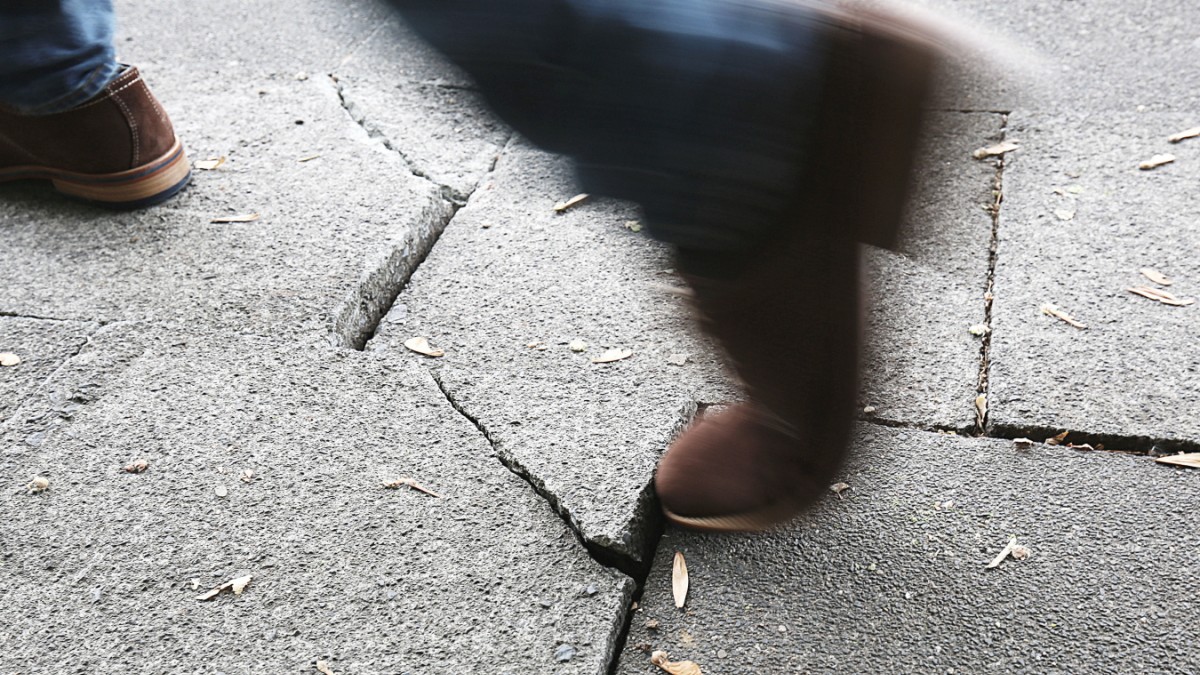You have all kinds of plans in Neuenrade, a town in the Märkischer Kreis with 12 200 inhabitants. The day care center and a school are to be renovated, as are two spaces and the sidewalk on Bahnhofstrasse. Neuenrade plans to invest a total of two million euros this year, and it is expected to reach 3.6 million in 2021. That was the plan. But now the corona crisis hits the small town in the Sauerland like all German municipalities with unprecedented force.
“At the latest when public life was brought down so drastically, it was clear to me that our city finances were under massive threat,” says Gerhard Schumacher, 58. As treasurer, he has been responsible for Neuenrade’s finances for 19 years. “The first quarter will still have run reasonably well on the revenue side,” he estimates. “But we will have significant losses in the rest of the year.”
Whether in cities with millions or in tiny rural communities – great arithmetic has started everywhere. And worry is growing everywhere. “The Corona crisis will hit municipalities harder than the financial and economic crisis,” said a spokesman for the German Association of Cities and Towns. At that time, trade tax revenues alone fell by 20 percent. A first, serious checkout will be possible on May 15 when companies have to transfer the next installment of their business tax prepayment to the respective municipality. This time, the payments will dribble, at best.
Trade tax revenues will probably decrease significantly
Because many companies have applied for tax deferrals in the face of massively shrinking or completely stalled businesses. All over the country, treasurers are counting on the fact that significantly less trade tax will flow in the rest of the year than calculated. Frankfurt am Main, for example, assumes a halving to one billion euros, in Hamburg there is talk of 1.65 billion euros less trade tax.
Even if the restrictions were relaxed and economic life were to be revived, the municipalities will still feel the effects of the pandemic in their coffers for a long time. Because companies demand trade tax back and will also pay less in the long term. And because the proportion of municipalities that they collect from their citizens’ income tax decreases, the more people work short-term or are unemployed. Conversely, what drives social spending.
In the meantime, cities and municipalities are breaking down the revenue. Because zoos, day-care centers, libraries, baths or theaters are closed and hardly anyone drives a bus, tram or subway, but the fixed costs for the staff continue to add. In many large cities, the fact that nothing works at airports, ports or exhibition centers, in the proceeds of which the municipalities are involved, has an impact.
The German city president and Leipzig mayor Burkhard Jung fears a deficit in the double-digit billion range in 2020. Hans-Günter Henneke, chief executive of the German district council, estimates 18 billion euros less, twelve billion of which are due to trade tax losses.
All reports on the current situation in Germany and worldwide as well as the most important news of the day – twice a day with SZ Espresso. Our Newsletter brings you up to date in the morning and evening. Free registration: sz.de/espresso. In our News app (download here) you can also use the espresso or breaking news Subscribe as a push message.
—
One municipality after the other is already pulling the emergency brake. In Neuenrade, for example, the small town in the Sauerland region, Kämmerer Schumacher had expected “trade tax of around eight million euros. Now I fear that it will be four or five million at best.” Which is why he is preparing for a supplementary budget. Even small things should be saved, such as the new furniture for the boardroom or the new lighting of the cultural villa.
And of course there is the question of new debts. In the financial crisis, Neuenrade had to take out cash loans to remain liquid, peaking at eight million euros. The amount had been halved by 2019. “Now that will go up again,” fears Schumacher.
Even small things should be saved, such as the new furniture for the boardroom
Other municipalities, such as Albstadt and Rheinfelden in Baden-Württemberg or Gera and Gotha in Thuringia, have already issued budget bans. Cologne’s treasurer, Dörte Diemert, instructed all of the city’s departments and departments to exercise the highest spending discipline, to check their budgets on an ongoing basis and, where possible, to avoid approved expenses. New things have to be “kept to a minimum”, only the bare essentials can be bought and what is absolutely “necessary for coping with the crisis”.
In Wuppertal, city treasurer Johannes Slawig expects additional expenses of up to 150 million euros. “After Corona, Wuppertal will be a different city,” he predicts. His Offenbach colleague Peter Freier says: “This crisis will leave deep marks.” In Baden-Baden, Mayor Margret Mergen warned of the worst. “I don’t know what our finances will look like in the end – probably devastating.”
From one day to the next, Covid-19 reversed the situation. Town hall politicians and treasurers have been used to the fact that tax revenues have bubbled in recent years. The budgets for the current year, which were decided before the outbreak of the Corona crisis, were planned accordingly optimistically. Now the money threatens to run out in many places. Citizens have to be prepared for drastic restrictions in municipal services.
Accordingly, the demands of the municipalities for state aid are getting louder. The President of the City Council and Mayor of Leipzig, Burkhard Jung, demands “a joint effort to ensure the cities’ ability to act and the liquidity of the municipal coffers”. Their interest groups demand that the federal and state governments should not only bail out the economy but also the municipalities. Otherwise, numerous municipalities could face insolvency.
– .


